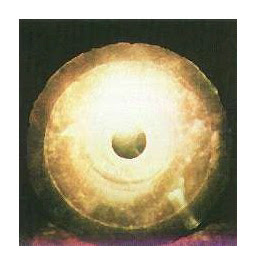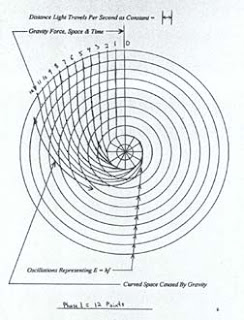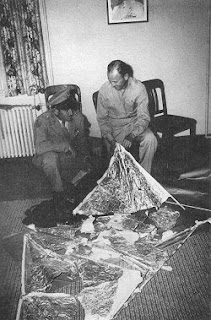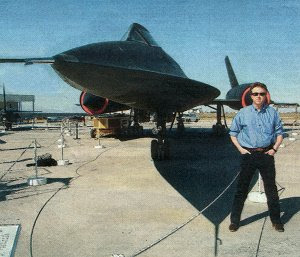An overview of conditions around the world.
by John Ross Schroeder and Jerold Aust
Nations around the world gang up on America
Late last year, Harvard historian Niall Ferguson labeled America as "the nation that fell to earth." In terms of dwindling domestic and international support, the war in Iraq has many parallels with Vietnam. In addition, what is currently occurring elsewhere on the international stage greatly augments the overall problem.
Russian President Vladimir Putin recently traveled to Iran and concocted a pact with five countries bordering the Caspian Sea. This pact states that no other country should interfere militarily or politically in the affairs of this Caspian bloc of nations. Some observers understand this pact as a clear warning that the United States should not carry out any military action against Iran.
In turn, Iranian President Mahmoud Ahmadinejad has been invited to Moscow for further talks. Only a short time ago the Iranian president was allowed to vent his anger against America from the UN headquarters in New York City. As U.S. News and World Reporteditor-in-chief Mortimer Zuckerman observed, "Iran's president, Mahmoud Ahmadinejad, came to America to stick his thumb in our eye and deliver a sanitized version of 'Death to America!' and 'The Holocaust Never Occurred'" (Oct. 8, 2007, emphasis added throughout).
Russian aid to Iran is nothing short of astonishing. For example, it is a massive supplier of arms to Tehran, including a $700 million air-defense system.
Naturally both Russia and Iran oppose the eastward expansion of NATO. Iran is counting on both Russia and China to oppose any future sanctions from the UN Security Council.
According to The Guardian (Oct. 12, 2007), a resurgent Sino-Russian political embrace is already well under way: "Moscow and Beijing are closer now than in the Communist period . . . They have frustrated Western hopes for sanctions or other tough action on disputes ranging from Burma and Darfur to Iran. They are blocking a solution on Kosovo." Tensions between Russia and America are clearly on the rise, alarmingly so.
Another diplomatic setback has been a cooling of the normally stable Anglo-American alliance. The new British prime minister, Gordon Brown, is no Tony Blair. Increasingly Britain is being sucked into Europe with more concessions of British sovereignty in the offing. Brown has agreed to the new EU treaty without giving the British people a referendum. Yet only an independent Britain can fully stand shoulder to shoulder with America as new and more deadly challenges to Western civilization present themselves.
In 1940 Winston Churchill warned that unless the English-speaking countries triumphed over Nazism, the world would "sink into a new dark age." How much more would this be the case if the West should fail in its war on terrorism? America and Britain eventually prevailed in two world wars in the last century. Yet our present century is not without its own civilizational showdowns. Recent trends showing America and Britain gradually being boxed into a corner should deeply concern us all.
Most do not understand the importance of the origins of the English-speaking peoples around the world. The historic and prophetic implications will yet prove to be enormous. To understand just how, request or download our free booklet The United States and Britain in Bible Prophecy. (Sources: The Guardian, The Times, Financial Times[all London],U.S. News and World Report.)
Newest Middle East peace proposal in jeopardy
According to a report from Jerusalem published in the International Herald Tribune, "Hamas has now sent hundreds of its fighters, most of them to Iran. . . Israel is watching as Hamas, in control of Gaza, is building an army there on the model of Hezbollah in southern Lebanon—constructing positions and fortifications." Some of their longer-range rockets are being held in reserve for future action against Israel.
Almost simultaneously, U.S. Secretary of State Condoleezza Rice (standing beside Palestinian Authority President Mahmoud Abbas) called for a Palestinian state as an integral part of the solution to the overall conflict. She continues her periodic meetings with both Israeli and Palestinian leaders. The United States will host a Middle East conference in November designed to put the peace process back on track. It was reported by The Economist that "diplomacy has yet another fleeting chance."
But the realism of U.S. News and World Report editor-in-chief Mortimer Zuckerman must be taken seriously. He wrote, "A renewed push to find an Israeli-Palestinian solution faces some profound problems as the head of Iran reminded us last week [in his UN address]." Mr. Zuckerman pointed out that the Iranian president's purpose was "to undermine the legitimacy of the state of Israel." This farseeing editor reminded us about "the refusal of the Palestinians to this day to acknowledge the right of Israel to exist."
Yet the League of Nations in 1922 and the United Nations in 1948 supported a Jewish homeland. Winston Churchill stated that "the Jews are in Palestine by right, not sufferance."
Mr. Zuckerman noted the Palestinian use of religion to achieve their political purposes. He recalled that "it was Arafat who invoked the Islamic terms of jihad and shahada . . . It was Arafat who introduced children to radical Islamic thinking so that they could become terrorists and suicide bombers." He also observed that the Palestinians "wish to rule not just in the West Bank and Gaza, but in Jerusalem, Tel Aviv and Haifa" ("Denial and Hope in the Mideast," Oct. 8, 2007).
Before the biblically prophesied peace finally comes to this troubled region, the future will prove far more crisis-prone than even the troublesome past. To truly comprehend both its historic and prophetic significance, request or download our free booklet The Middle East in Bible Prophecy. (Sources: The Times [London],USA Today, U.S. News and World Report, International Herald Tribune. )
American-Turkish relations on the edge
Turkey , a longtime U.S. ally, is on the point of hindering American plans and intentions in Iraq. A large-scale Turkish incursion into northern Iraq to thwart Kurdish rebels may be imminent. Clearly it would complicate Washington's plans in that strife-torn country.
At this crucial time of policy differences between the United States and Turkey, the Democratic Party-controlled House of Representatives tried to formally condemn the World War I-era massacre of Armenians by Turks as genocide. However valid the facts may be, the timing is highly inopportune. So President Bush has asked the House to think again. These are not the easiest days for American diplomacy.
Stark implications of Israeli strike against Syrian reactor
According to The New York Times, "Israel's air attack on Syria last month was directed against a site that Israeli and American intelligence analysts judged was a partly constructed nuclear reactor, apparently modeled on one North Korea had used to create its stockpile of nuclear weapons fuel, according to American and foreign officials with access to the intelligence reports" (Oct. 14, 2007).
A somewhat similar Israeli raid on Iraq took out the Osirak nuclear reactor in 1981, putting a sudden halt to Iraqi nuclear efforts. Yet since the Syrian reactor apparently would have required some years to actually produce bomb-grade plutonium, this latest raid was seen by one senior Israeli official as intended to "re-establish the credibility of our deterrent power."
Some American officials saw it as a clear signal to Iran. Several months earlier another senior Israeli source had said, "We are the product of a Holocaust in Europe and we will do everything . . . to prevent another holocaust recurring in Israel. If the Americans do not act, then we will act" (The Sunday Times).
What is also highly disturbing is the desire for nuclear weapons in several Middle Eastern nations, a somewhat natural reaction given the current Iranian threat. The year 2006 was labeled "The year of the nuke" by Newsweekin terms of increased nuclear proliferation around the globe.
Most countries say they want to avoid a nuclear Armageddon. The late Ronald Reagan wrote in his diaries while still U.S. president that "we have to do all we can . . . to see that there is never a nuclear war" (quoted in Scientific American,October 2007). However, a few rogue countries and suicidal terrorist groups seem inclined to provoke the unthinkable. (Sources: The Sunday Times[London], The New York Times, Newsweek, Scientific American.)
Birth control pills for 11-year-olds?
Controversy and confusion surrounded the decision by King Middle School in Portland, Maine, to offer birth control pills to children as young as 11, without their parents' knowledge. Oral contraception and condoms have been available for years in Portland's high schools, but extending this policy to middle schools is seen by some as encouraging underage sexual activity.
This practice is also viewed as possibly covering up sexual and other forms of abuse in families. It also provides the potential for a pregnant 11-year-old child to be diagnosed and then to have an abortion without parental awareness or consent.
Some parents were ambivalent or even favored the school's independently operated clinic taking over this important aspect of child care. However, others are worried about the long-term health issues resulting from taking oral contraception at such an early age and the potential for future psychological difficulties when children and young teenagers become involved in sexual relationships or have abortions—all without parental knowledge or counsel.
On Oct. 19, the principal of King Middle School published a letter on the school's Web site explaining the rationale for the decision: "To prevent pregnancy the Health Center needs to have contraception as an option when a student admits being sexually active. Contraception would only be prescribed in rare cases after counseling about abstinence and postponing sexual behavior was not productive. Every effort is always made to encourage the student to join with her parents in making this decision."
This all appears to be treating the effects of a problem and not the root causes. Surrounded by a culture that no longer allows children to be children, is it possible that a child of 11 or a teenager of 14 or 15 would even recognize that she or he was being coerced into sexual activity?
Without a strong moral society or, failing that, strong family values in setting a right example of abstinence before commitment (commitment within a biblical marriage), how are children to learn what is right and what is wrong where sexuality is concerned?
For information on God's purpose for marriage and families, request or download our free booklet Marriage and Family: The Missing Dimension. (Sources: Detroit Free Press, The New York Times, King Middle School Web site.)
Staph infections proving more deadly than the AIDS virus
Both The Washington Post and the Associated Press (AP) recently highlighted the emergence of a drug-resistant staph germ that is greatly increasing fatalities. ThePost stated that "a dangerous germ that has been spreading around the country causes more life-threatening infections than public health authorities had thought and is killing more people in the United States each year than the AIDS virus."
According to the AP, "more than 90,000 Americans get potentially deadly infections each year from a drug-resistant staph 'superbug,' the government reported in its first overall estimate of invasive disease caused by the germ." These infections, in both mild and invasive forms, "affect 46 out of every 1,000 U.S. hospital and nursing home patients."
Most staph cases tend to be relatively mild skin infections, but invasive infections that enter the bloodstream can easily become deadly. Apparent overuse of antibiotics has severely limited the effectiveness of countermeasures. Hospital and nursing home patients, mostly senior citizens, are the main victims, but deadly staph infections also strike the very young.
ThePost further stated: "Studies have shown that hospitals could do more to improve standard hygiene to reduce the spread of the infections." The AP report concurred, suggesting that "the results underscore the need for better prevention measures curbing the overuse of antibiotics and improving hand-washing and other hygiene procedures among hospital workers." So biblical hygienic and cleanliness ordinances set forth in the Bible are up-to-date even in our modern world.
According to Bible prophecy, the four horsemen of the apocalypse will ride in ever-increasing intensity. The pale horse signifies disease epidemics. For further understanding, request or download our free booklets The Book of Revelation Unveiled and Are We Living in the Time of the End? (Sources: Associated Press, The Washington Post.)













